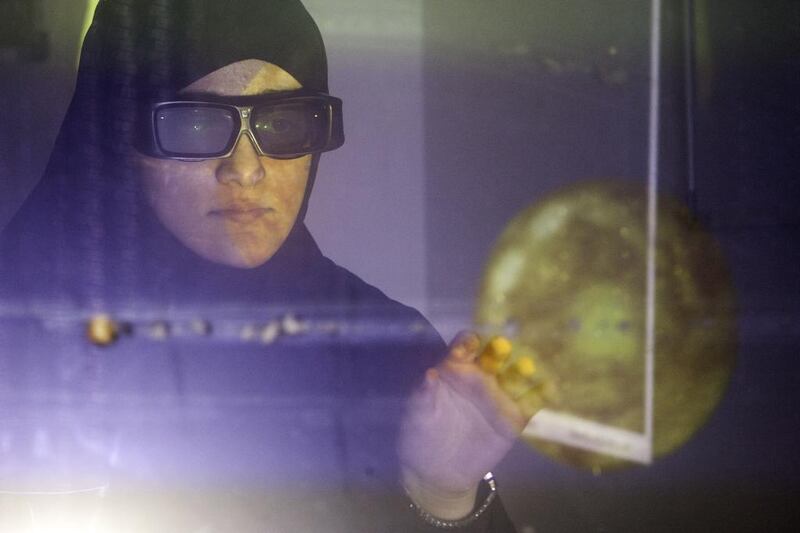DUBAI // Students at a Dubai university campus are pushing the boundaries of technology.
Working with professional researchers under the oversight of academics at the University of Wollongong, the students are developing the latest surveillance drones and three-dimensional holographic capabilities at a new research centre.
Based in the university’s Knowledge Village campus, the 35 students and researchers are focusing on simulation and smart technologies.
Mohammed Niazi, 34, is in his second year of a computer-science course. He decided to pursue a bachelor’s degree after reaching a plateau in his career as a project manager at a software company in the United States.
“The research centre uses the latest technology,” he said.
“I love to get into things that aren’t already out there and being one of the people looking for the answers. The centre enhances the study experience here.”
Sara Majeed, a 21-year-old computer-science graduate, is a researcher at the centre where she is working on the holographic project. “It’s great to have this centre because it does enhance and create an interest to get into and develop technology,” she said.
“We have a private space to work on it, too. We’re not borrowing classrooms so it’s good to have our own space and this really facilitates the growth of our projects.”
Henna Wadhwani agreed. “There’s a lot you don’t learn in classes so this gives you more exposure,” said the 21-year-old, a recent computer-science graduate from the university who now teaches and supervises students as a researcher at her alma mater.
“It’s a stage where you can work on your ability, which for me was mobile technologies and doing it with a mentor is much better.”
Second-year electrical engineering student Amish Suchak, 21, welcomed the centre’s opening, saying students could dedicate more time to their research work.
“The centre gives us unlimited access to our computers which we didn’t have otherwise,” he said. “These computers we use do so much more than we could do in the labs. We always have someone here to ask for support, and with students from other subjects, we get to interact, work together and share our knowledge.”
Luke McShine, a 21-year-old computer engineering student, is working with Mr Suchak on developing surveillance drones that could be used by Dubai Police to free up patrols in busy areas such as major roads or on potentially risky areas such as public beaches.
“The research centre teaches us how to multitask and gives you more responsibility.”
We have our deadlines and we have to get these things done in our own time,” said Mr McShine.
Dr Catherine Todd, the head of the research centre, said the centre was seeking external funding from the government and industry groups.
She works with medical experts to develop devices to help people with visual and hearing impairments, and she mentors the students and researchers.
“Most, if not all, of these projects are collaborative between the areas of the centre such as the holography project that entails both simulation and smart-system areas and with UAE-based industries and our overseas colleagues at the main campus in Australia,” she said.
The centre forms part of the university’s drive towards offering a doctorate in computer engineering. “This centre will facilitate getting higher-degree research students,” said Dr Todd.
mswan@thenational.ae






